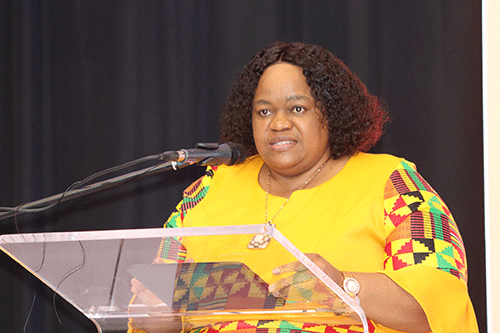For Namibia to trade locally, regionally and globally, it is a regulatory requirement for products produced or manufactured domestically to be of quality and also that the quantity and packaging standards meet international requirements.
Thus, trade minister Lucia Iipumbu last week tabled the new Metrology Bill for consideration and subsequently ratification by the August House. Metrology is the science of measurements and its applications include all theoretical and practical aspects of measurements.
“I wish to reiterate that metrology is of outmost importance in our daily lives as it reinforces quality in manufactured goods and processes through accurate and credible measurements and provides the basis for fair domestic and international trade,” said the trade minister as she motivated the Bill.
The new Bill seeks amongst others, to redress a widening gap on legal units of measurement in Namibian legislation, particularly on traceability and measuring equipment related to metrology such as consumer protection and conformity assessments.
Iipumbu explained that countries like Namibia draw up metrology laws based on national needs and the desire for regional and international harmonisation of metrology regulations. The Bill further attends to Namibia’s national quest to be in sync with its trading partners to foster market access and alleviate technical barriers to trade based on measurements.
According to the minister, the adoption and implementation of the revised Trade Metrology Act will undoubtedly serve as a catalyst for economic emancipation and appreciation of the quality culture amongst Namibian society, including consumer protection.
“The Bill will certainly guarantee reduced disputation and transaction costs, as well as the control and reduction in fraud incidences. State organs such as the newly established Namibia Revenue Agency will also benefit from this amendment, as the Bill creates a legal framework for full collection of taxes, fees, rates, and tolls where applicable,” stated Iipumbu.
The application of accurate and precise measurements ensures fair and acceptable trade among trading partners and also upholds that the once tested principles are accepted everywhere.
The minister further noted it is on this basis that national technical regulations were adopted by government to ensure both producers and consumers at national and international levels are protected against unfair trading practices, the absence of which would have led to technical barriers to trade.
The new Metrology Bill being tabled repeals and supersedes the Trade Metrology Act of 1973 and the 2005 Trade Metrology Amendment Act.
The need to revise the Trade Metrology Act of 1973 and the 2005 amendments stem from the repeal of the 1973 Metrology Act, which focused primarily on trade related activities with emphasis on the application of accurate and precise measurements in trade transactions.
Simply put, Iipumbu explained the new legislation ensures, for example, that a measuring instrument such as a weighing scale provides correct reading so that “if one buys a kilo of maize, one gets a kilo of maize”.


